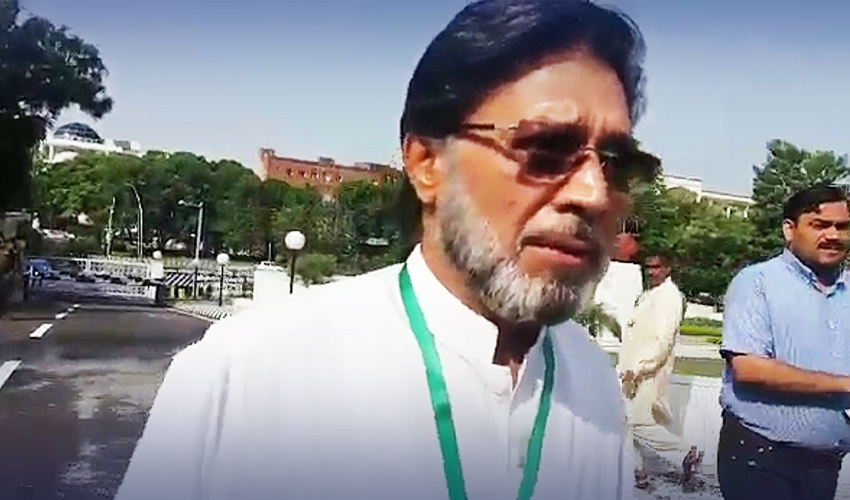Ex-husband of Bushra Bibi and complainant in the Iddat Nikah case Khawar Manek expressed a lack of confidence in Sessions Judge Shahrukh Arjumand.
The proceedings were conducted at the District and Sessions Courts in Islamabad, where Judge Shahrukh Arjumand presided over central appeals against the conviction of Pakistan Tehreek-e-Insaf (PTI) Imran Khan and his wife Bushra Bibi.
Appearing before the court were Khawar Manika, Salman Akram Raja, and other PTI lawyers, with Raja accompanied by assistant counsel Rizwan Abbasi Advocate Emil Khan Advocate.
Maneka voiced concerns over the court's impartiality, requesting the transfer of their case to another court due to perceived favouritism towards PTI.
Responding to Manika's assertion, Judge Shahrukh Arjumand expressed surprise, stating that it was the first time in his career that someone had expressed distrust in him.
Maneka cited the revelation of a marriage certificate dated January 1 during trial hearings, contradicting previous denials, as grounds for their lack of confidence.
Tensions escalated during the hearing as Manika and PTI lawyer Salman Akram Raja exchanged heated remarks. Maneka accused the PTI founder of physical assault and questioned the involvement of Zulfi Bukhari, leading to a contentious exchange between the parties.
In response, Judge Shahrukh Arjumand acknowledged common perceptions of judicial outcomes but emphasized the need for evidence-based decisions.
The court directed advocate Usman Riaz Gul to review relevant legal sections, indicating the possibility of seeking recourse through higher judicial channels.
Maneka reiterated concerns about impartiality, alleging a predetermined outcome favouring the PTI founders. Raja argued against the motion, labelling it as contempt of court and highlighting recent legal precedents.
The court, after hearing arguments from both sides, reserved judgment on Maneka's motion of no confidence. The proceedings underscored the complex dynamics at play in the legal battle surrounding the Iddat Nikah case, with implications for the broader political landscape



























